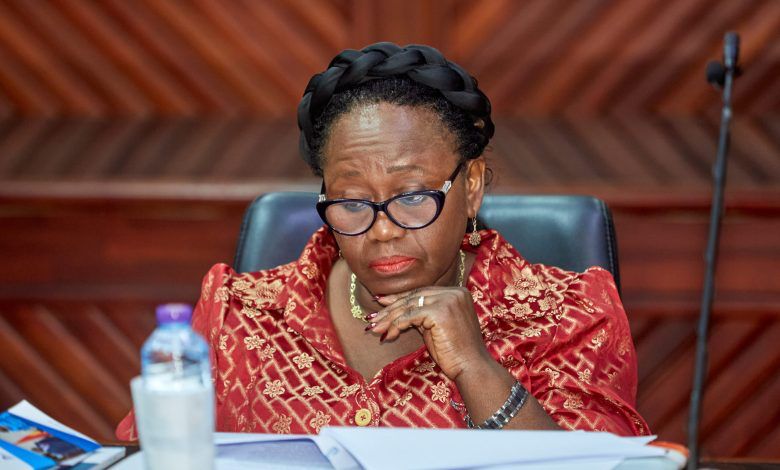Paragraph 1: The Controversy Surrounding Chief Justice Torkonoo’s Suspension and Press Conference
The suspension of Chief Justice Gertrude Esaaba Torkonoo has ignited a heated debate in Ghana’s legal and political circles. Justice Torkonoo’s subsequent press conference further fueled the controversy, drawing criticism from various quarters, including public interest advocate Rodaline Imoru Ayarna. The core issue revolves around the allegations against the Chief Justice, the process of her removal, and her public response to these developments. Ayarna, a member of the Alliance for Revolutionary Change, contends that Justice Torkonoo’s press conference was ill-advised and potentially damaging to her future prospects. This critique centers on the perception that the Chief Justice’s statements constituted an attack on the government, jeopardizing the state’s potential endorsement of her for future international opportunities.
Paragraph 2: Ayarna’s Critique of the Chief Justice’s Strategy
Ayarna’s primary argument rests on the premise that Justice Torkonoo’s approach could undermine her future career aspirations. Ayarna posits that if the Chief Justice is ultimately removed from office, she may seek positions within international organizations. Securing such positions often requires recommendations from one’s home country. Ayarna suggests that by publicly criticizing the government and portraying the removal process as politically motivated, Justice Torkonoo risks damaging her reputation and hindering the state’s willingness to provide a positive endorsement. This strategic misstep, according to Ayarna, could significantly limit the Chief Justice’s options in the international arena.
Paragraph 3: The Potential Ramifications of a Strained Relationship with the State
Ayarna underscores the importance of maintaining a positive relationship with the state, particularly for individuals seeking international appointments. She argues that international organizations often prioritize candidates with demonstrable integrity, loyalty, and reliability. By publicly challenging the government, Justice Torkonoo, in Ayarna’s view, risks being perceived as lacking these qualities. This perception could negatively influence the state’s willingness to endorse her for international roles, potentially leading to a loss of crucial support and hindering her ability to secure such positions.
Paragraph 4: The Chief Justice’s Assertions and the Perceived Political Undertones
At the heart of the controversy are the allegations leveled against Chief Justice Torkonoo, which she vehemently denies. During her press conference, she maintained that the accusations do not meet the threshold for removal from office and that her rights are being violated in the ongoing process. She further suggested that the proceedings are politically motivated, a claim that has intensified the scrutiny of the entire affair. This assertion of political interference adds another layer of complexity to the situation, raising questions about the impartiality of the process and potentially undermining public trust in the judicial system.
Paragraph 5: Analyzing the Implications of the Press Conference
Ayarna’s criticism of the press conference highlights the delicate balance Justice Torkonoo must strike. While defending herself against serious allegations is crucial, the manner in which she does so can have significant consequences. Ayarna suggests that the press conference, by framing the situation as a political attack, may have alienated the very entities whose support she might need in the future. This strategic miscalculation, Ayarna argues, could ultimately prove detrimental to the Chief Justice’s long-term career prospects.
Paragraph 6: The Broader Context and Future Implications
The controversy surrounding Chief Justice Torkonoo’s suspension and subsequent press conference underscores the complex interplay between the judiciary and the political landscape in Ghana. The allegations, the removal process, and the Chief Justice’s public response have all contributed to a highly charged atmosphere. The ultimate outcome of this situation will have far-reaching implications, not only for Justice Torkonoo’s career but also for the perception of judicial independence and the rule of law in Ghana. The case also highlights the challenges faced by individuals in high-profile positions when navigating accusations and defending their reputations while maintaining crucial relationships within the power structure.


